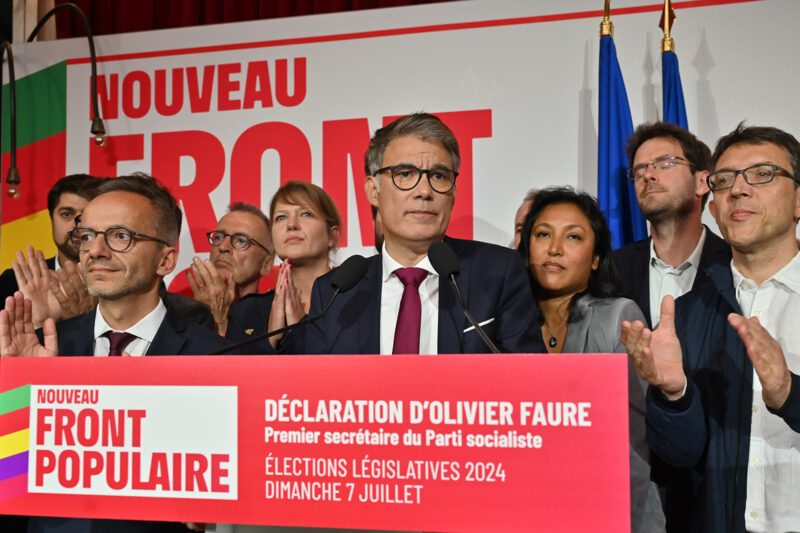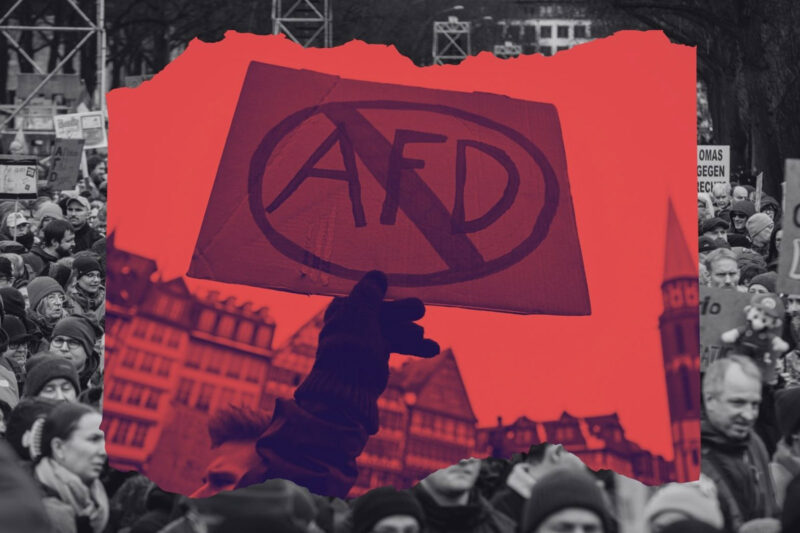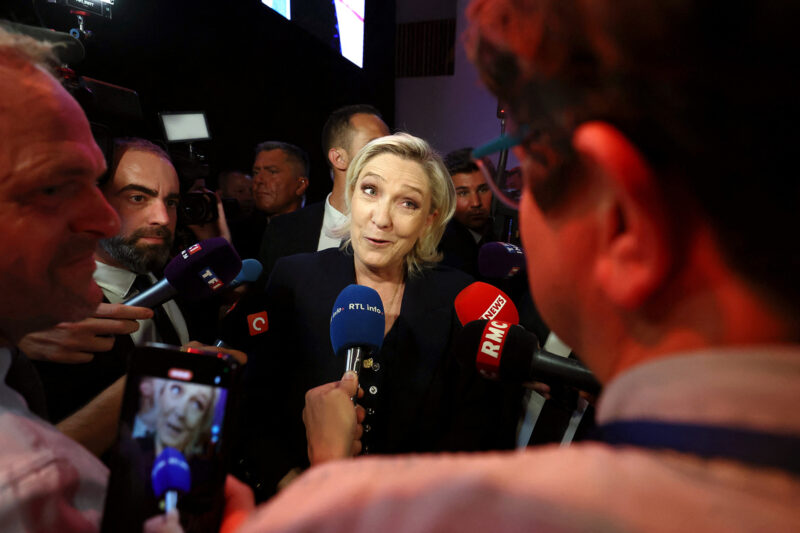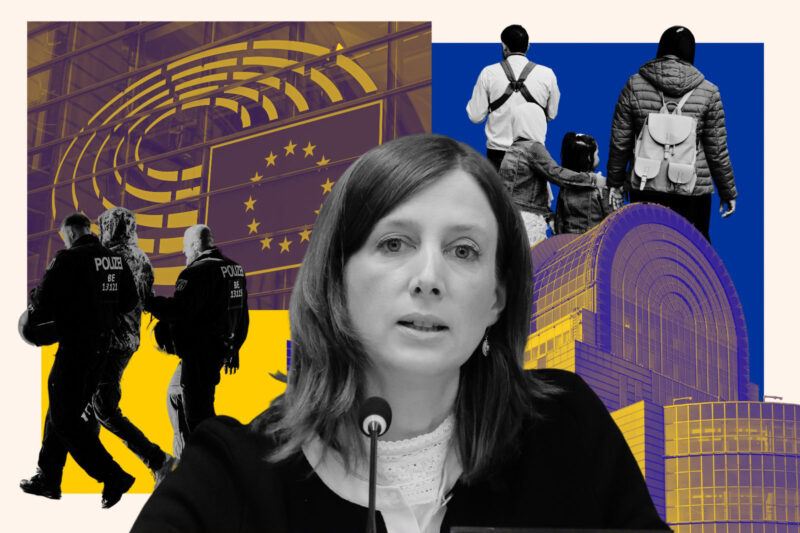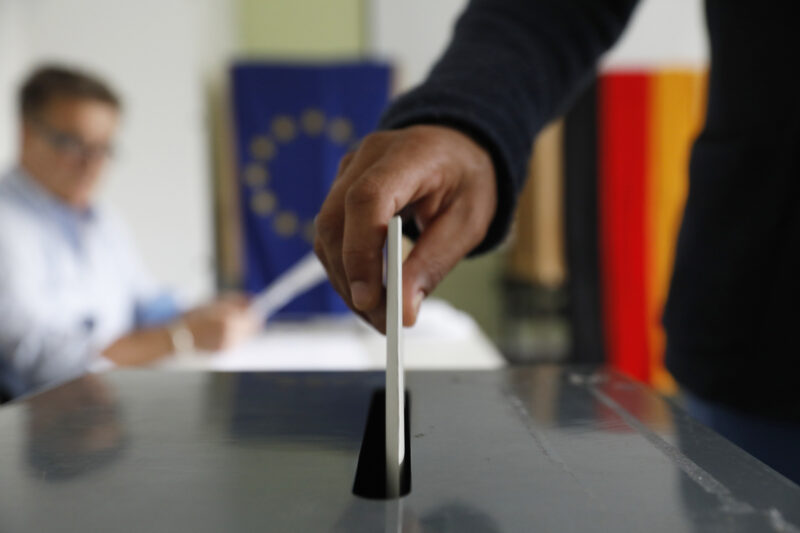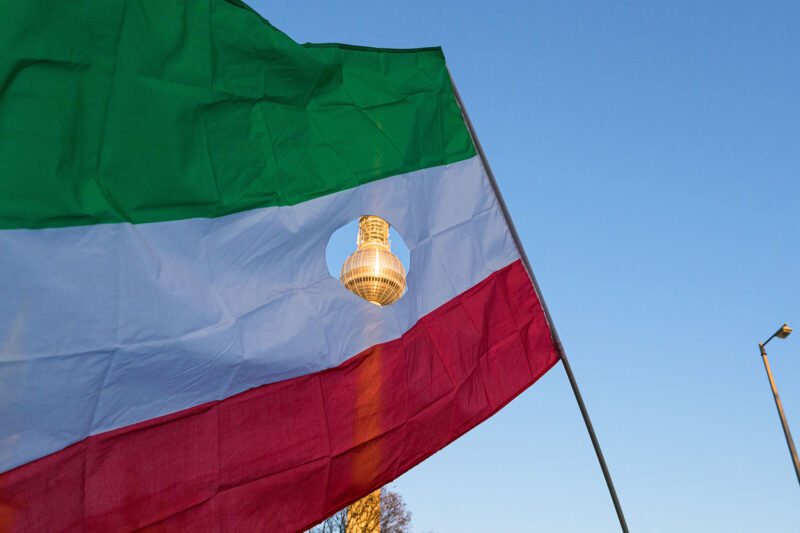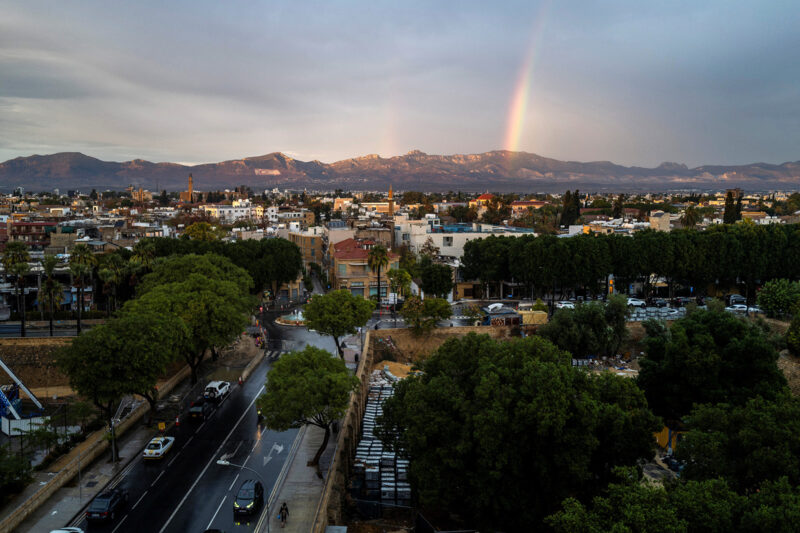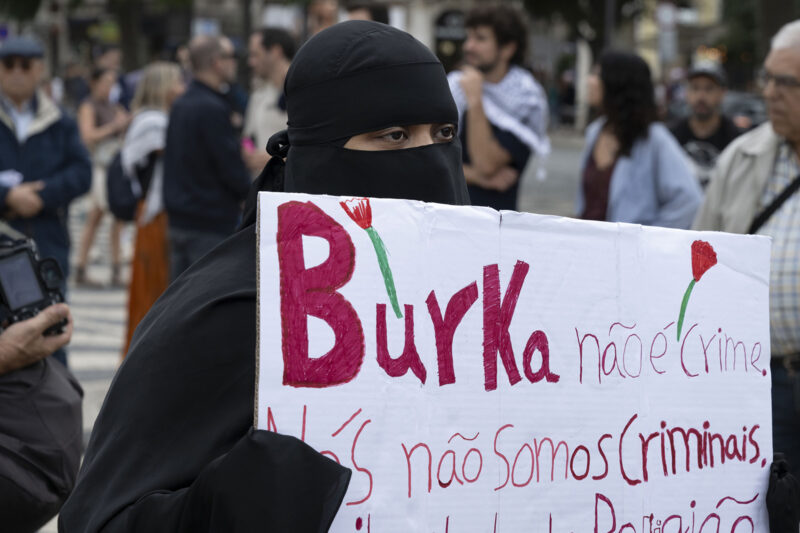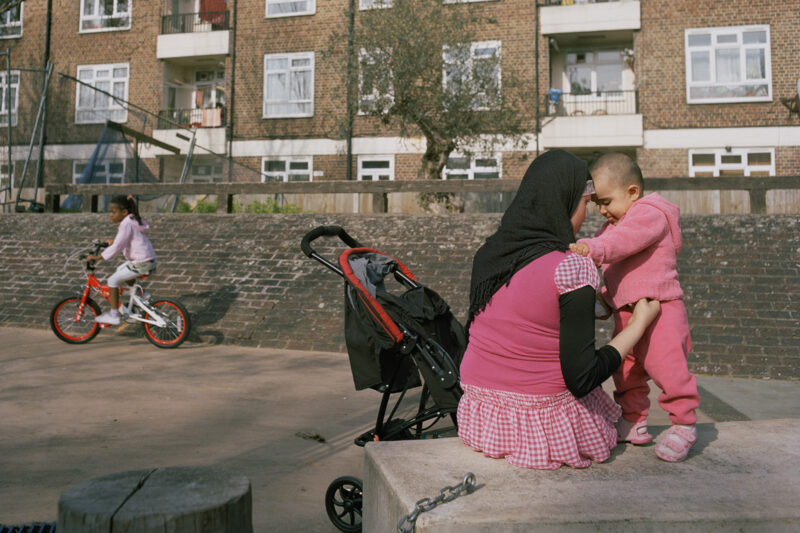What now for France’s Muslims?
They have avoided a far-right government for now, but how can they recover from an election in which 10 million people voted for an anti-Islam party?
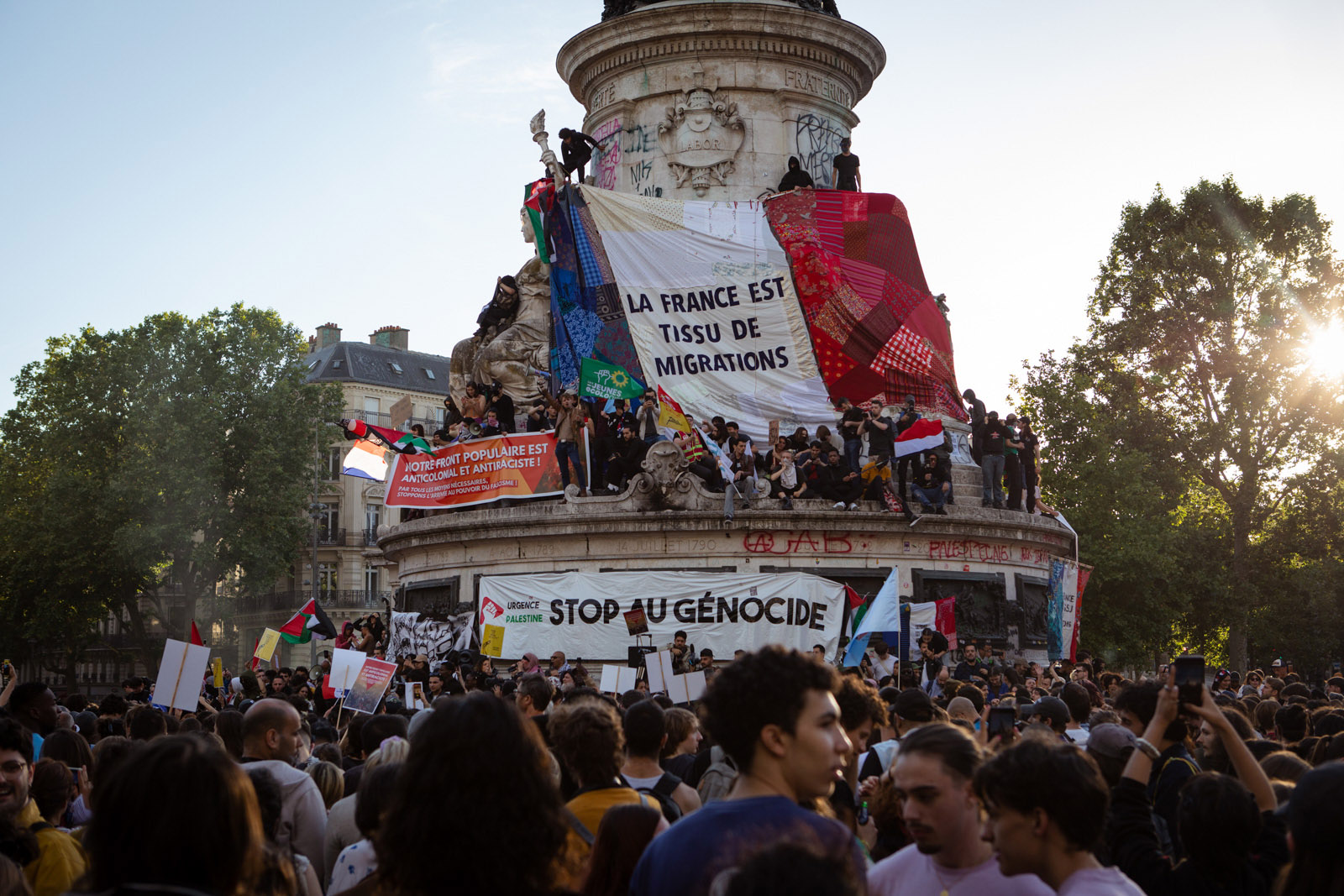
As the clock struck 8pm on 7 July in the Place de la République, a historic political gathering point in Paris, screams of wild joy and relief erupted among the thousands of demonstrators when election exit polls revealed that a mobilisation of French voters had halted the far right from coming to power for the first time in postwar France.
“We are all anti-fascists!” sang the revellers, some of whom then climbed on to Léopold Morice’s iconic statue in the middle of the square, a symbol of the republic, to unravel Palestine flags. A giant banner read: “France is stitched together by migration” — a response to the anti-immigrant, Muslim-hostile discourse of the party they kept out of government.
Marine Le Pen’s National Rally (RN), a party that has promised a “cultural battle” against Islamism, won the first round of snap parliamentary elections on 30 June with 34% of the vote and was expected to win the largest number of seats in France’s National Assembly. But in the final vote, a shock result saw the broad left-wing coalition the New Popular Front (NFP) take 182 seats out of a total 577, ahead of president Emmanuel Macron’s centrist coalition Ensemble on 168 seats, and the RN pushed back to third place on 143 seats. A political tradition in France known as the “Republican Front”, which saw hundreds of tactical withdrawals by candidates from the left and the centrist coalitions to avoid splitting the vote against the far right, had seemingly paid off.
“It was a great relief,” Kamel Kabtane, the rector of the Grand Mosque in Lyon, told Hyphen. “I was very happy to see that the French people had understood the danger the RN represents to our society. We mobilised together against them.”
Kabtane was one of a number of French Muslim community leaders to gather in Paris’s Grand Mosque on 3 July to call for a mass voter mobilisation against what they saw as an “existential” threat to the country’s political institutions.
“Voting is not only authorised in Islam but also prescribed,” read a statement that he co-signed days before the vote. “In a situation where abstention benefits extremists who are obsessed with Islam and Muslims, it can even become an obligation.”
However, as the dust settles on the electoral earthquake, Muslims in France are facing the reality of living in a country where more than 10 million people voted for a political party that has been openly Islamophobic.
“We avoided the worst,” said Rayan Freschi, a France-based researcher for advocacy group CAGE International, which aims to empower communities affected by the war on terror. “But I’m rather pessimistic. The problem hasn’t just disappeared.”
A major concern for Freschi is that although the NFP — whose pledges include giving courts more powers to crack down on Islamophobic hate crime and an inter-ministerial plan to study, prevent and fight Islamophobia in France — won the highest number of seats, it is still far from having the 289-seat majority necessary to form a government, and a hung parliament is the result with three large, vehemently opposing blocs. As the struggle to negotiate a working government goes on, complicated by thorny efforts to form a cross-party coalition, France is set for months, if not years, of impasse during which any meaningful policy changes will be unlikely.
“If the NFP are able to govern, they will be obliged to make compromises,” Freschi said. “And one of the first compromises will be on religious liberties. That’s what the other blocs will want.”
France is home to 5.7 million Muslims, the largest community in Europe. Over the past few years they have seen Islamophobia becoming increasingly accepted in mainstream politics. According to Haoues Seniguer, a researcher at Sciences Po University in Lyon and author of The Authoritarian Republic: Islam in France and the Republican Illusion, increased “religious persecution” has been a feature of the Macron presidency.
“Since his accession, Macron has led a normalisation or banalisation more or less of racism and Islamophobia,” Seniguer said. “Macron has facilitated the rise of the far right by taking on their policies [in an attempt to fend them off].”
In 2021, Macron introduced the so-called separatism law. Viewed by critics as deliberate discrimination against Muslims, it broadened the grounds for closing mosques, banned community organisations, restricted home schooling, and obliged charities to pledge allegiance to French “Republican principles” in order to receive government subsidies. Last year, his government also banned the abaya in schools and forbade athletes from wearing the hijab at the Olympic Games to be held in Paris this month.
Amnesty International’s 2024 State of the World’s Human Rights report noted that anti-Muslim discriminatory speech and hate crimes had “spiked” in France since the Hamas terror attack of 7 October 2023 and Israel’s offensive in Gaza. In June, 40 ultra right-wing militants marched in the streets of Lyon chanting “we are Nazis’” and “get Islam out of Europe”.
Even before these snap elections and the very real possibility of a French far-right government, these mounting tensions have driven growing numbers of Muslims living in France to leave. A study published in April by researchers at the University of Lille, titled “France, You Love it But Leave it”, surveyed more than 1,000 French Muslims who had left the country in order to no longer experience racism and discrimination because of their faith.
When France votes for a new president in 2027, the far right will have another chance at power. Le Pen, the RN’s presidential candidate, has already announced plans to ban the hijab in public spaces and to prohibit the distribution of halal goods. Her 28-year-old protege, Jordan Bardella, has vowed to “combat Islamist ideologies” from his position in the French parliament.
For rector Kabtane, the opportunity for meaningful change offered by this brief reprieve must be seized. “The Muslim community in France is very concerned,” he said. “The government has played with fire. But now it must unify and organise the country together. We need a politics of justice and equality.”
Seniguer agrees that whoever forms France’s next government must open up some kind of dialogue with leaders of the French Muslim community to set the country on a healthier trajectory. “To reassure Muslims, to help heal these wounds, they must open up discussions, inclusive discussions about what has happened,” he said.
 Newsletter
Newsletter


